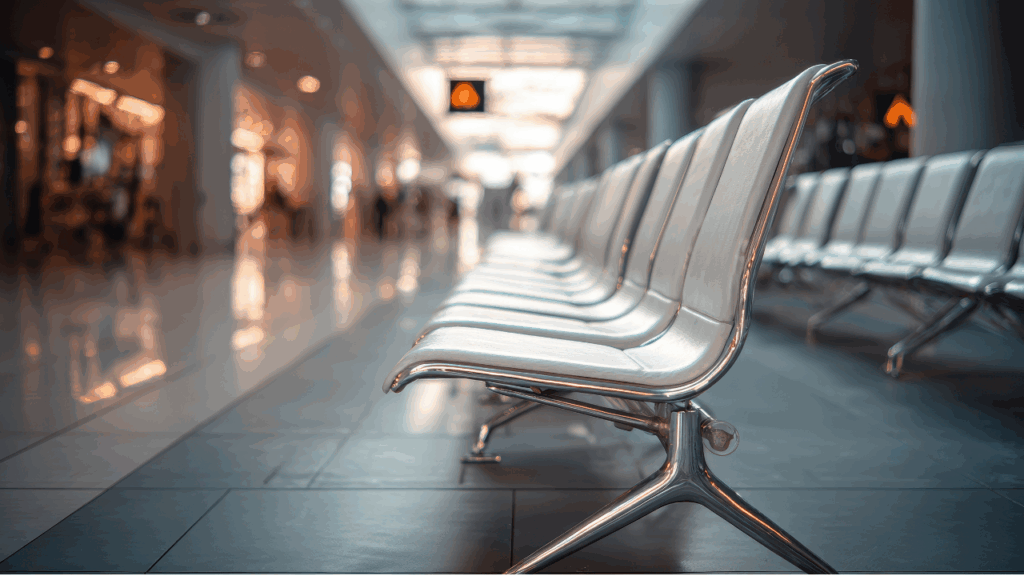Last September 23rd at IFTM 2025, DIGITRIPS CEO Emilie Dumont joined a special round table with other leading travel distribution experts to discuss the state of travel and tourism, five years after Covid-19. How has Covid impacted and re-shaped the travel industry and travelers’ behaviors ? Are Covid impacts still tangible ?
Moderated by journalist François-Xavier Izenic, the round table brought together several major travel tech and travel distribution leaders : Amadeus France CEO Frédéric Saunier, Protourism CEO Didier Arino, TravelSoft and Orchestra Founder and CEO Christian Sabbagh, Air France VP Trade Sales Hervé Kozar and Marietton Développement CEO Laurent Abitbol. Experts explored four major post-Covid transformations of the travel industry.
Summary
- Rethinking Travel Pricing in a post-Covid economy
- Flexibility and Personalization: The New Travel Tech Standards
- The Rise of Digital-First Journeys
- Are travelers now looking for more sustainable travel ?
- AI and the Post-Covid Travel Revolution
Rethinking Travel Pricing in a post-Covid economy
The first visible impact is about prices, currently higher for both airfares and accommodation than pre-Covid levels. All experts agreed that Covid could not explain the price rise alone – global geopolitical tensions have driven prices up. The panel discussed travelers’ behavior and their reaction to inflation.
Inflation, Recovery and the New Pricing Equilibrium
After the Covid crisis and the “revenge travel” wave, prices in tourism—especially flights and hotels— rose sharply, especially since Russia’s war over Ukraine. While air capacities are back to 2021–2022 levels, demand has remained strong, keeping fares high. Medium-haul flights increased by 15% year over year, and by as much as 50% on destinations such as the Caribbean.
“In travel, prices should reflect the level of service” explained Emilie Dumont. As of today and despite inflation, supply and demand are largely balanced, Air France VP Trade Sales Hervé Kozar added.
Changing Traveler Behavior in a More Demanding Market
Regarding travelers’ behavior, all experts pointed out the end of post-Covid “revenge travel” period. Travelers are not traveling less – they tend to travel better and be more demanding, despite inflation and purchasing power matching pre-Covid levels. Emilie Dumont explained “Travel may be the only industry where travelers are ready to tighten up their budget for better experiences.”
Laurent Abitbol from Marietton Developpement added that one interesting recent phenomenon was more travelers being ready to upgrade for business class – a sign that leisure and comfort remain top priorities.
Flexibility and Personalization: The New Travel Tech Standards
From Crisis Lessons to Travelers’ Expectations
The second major shift of the travel industry is travelers’ quest for more flexibility and adaptability after Covid. For DIGITRIPS CEO Emilie Dumont, this might be the most important learning of the post-pandemic era.
Travel actors painfully experienced the cancellation and refund processes during the pandemic, which sometimes threatened their business model at their core, due to unoptimized processes. Covid accelerated the need for digital-optimized services, both for travelers and travel actors, setting flexibility in payments, cancellations and bookings as the new standard.
DIGITRIPS Solutions: Flexy Options, Floa Payments & Dynamic Packaging
Emilie Dumont detailed DIGITRIPS Pro’ solutions to offer travelers a smoother and more agile purchasing journey :
- Flexy50 and Flexy100 options, allowing customers to cancel their flights with 50% or 100% reimbursement in credit, up to one day before departure,
- The payment in four monthly installments, developed with banking partner Floa,
- Dynamic packages, with real-time optimized flights and accommodation bundles,
- The FREEZE option, to secure the price of flight tickets and be able to confirm 10 days before departure.
According to Emilie Dumont and Laurent Abitbol, dynamic packages are on the rise for both travelers and travel agents, as bundling services allow travelers to better control prices, when fluctuant flight prices still degrade the look-to-book ratio.
The Rise of Digital-First Journeys
As mentioned earlier, the need of digital-first services was one of the major impacts of Covid, especially for hotels which were slower to adopt SaaS management solutions. However for solution providers, offering digitalized tools did come with adaptation to digital-friendly and SaaS-based internal processes – which many travel actors struggled with.
Covid as a Catalyst for Online Booking Acceleration
Despite travelers running towards store-to-web booking processes, Laurent Abitbol highlighted that many of them tend to turn back to agencies, as they face more – avoidable – frictions in their online booking journey, especially with refund requests. Also, prices being roughly the same online and offline, travelers reconsider agencies as credible and reliable purchase channels.
Bridging the Gap Between Digital and Human Touchpoints
Travel agencies are performing performing better than in 2019, with digitalization happening within agencies themselves. Even in physical locations, agencies are equipping themselves with digital tools.
In terms of generational gap, Hervé Kozar pointed out the Gen-Z challenge, gaining purchasing power five years after Covid and being mobile-first. Senior and DINKs travelers still are the main customers of physical travel agencies. As he underlined, maintaining both online and offline sales channels is key to serve all audiences.

Are travelers now looking for more sustainable travel ?
The “Say–Do” Gap: How Tech Can Encourage Responsible Travel
Even if the interest in sustainability among younger generations under 35, as they increasingly demand more responsible travel options, a clear “say–do gap” remains. While travelers express concern for the environment, their actual choices often prioritize convenience and fluidity. The post-COVID boom in hiking, cycling, and “slow tourism” reflects a desire to reconnect with nature, yet few travelers are truly willing to pay more for greener options.
Measuring, Communicating, and Acting: How Travel Players Adapt
The market is still evolving, and travel professionals must learn to better communicate their environmental impact—sharing carbon footprint data and transparent sustainability metrics, particularly in accommodation. As Emilie Dumont recalled, DIGITRIPS already integrated carbon emissions in its web agent tool, thanks to a partnership with Atmosfair.
All experts agreed to say the focus now is on measurement and transformation. Airlines like Air France are taking the lead, investing €1 billion to renew their fleet and position themselves as sustainability leaders. For agencies, integrating sustainability isn’t just a moral imperative but a business opportunity: travelers increasingly value brands that make responsible choices both visible and easy to act on.
AI and the Post-Covid Travel Revolution
To conclude the round table, guests discussed the impact of AI and how it is reshaping the post-Covid travel industry.
In the post-COVID era, artificial intelligence is emerging as the next major transformation in travel. The pandemic reshaped expectations—travelers now seek greater flexibility, personalization, and reassurance—and AI is about to accelerate this shift. Enabling smarter recommendations, faster service, and more efficient operations, it helps the industry respond with more agility to changing customer behaviors.
Yet, as DIGITRIPS CEO Emilie Dumont emphasized, travel remains a deeply human experience—rooted in emotion, connection, and discovery. AI cannot replace that; it can only enhance it. For travel professionals, the challenge ahead is to combine the efficiency of AI with the empathy and authenticity that define meaningful journeys. Technological revolution is only beginning—much like the dawn of the internet age.





